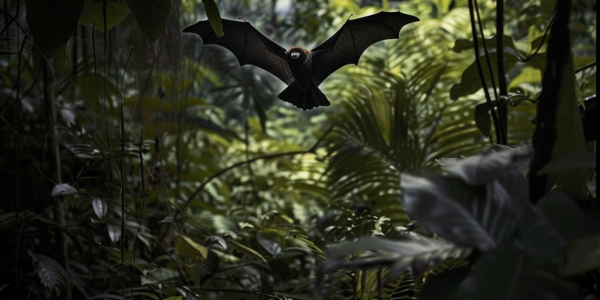Ecological Countermeasures for Preventing Pathogen Spillover
Learn about the importance of ecological countermeasures in preventing pathogen spillover and subsequent pandemics. This article emphasizes the need for a shift in focus towards prevention and proposes ecological interventions to disrupt spillover mechanisms. Discover the role of ecological approaches in a comprehensive pandemic prevention strategy and the significance of investing in prevention to complement existing preparedness and response efforts.
Dengue Fever Outbreak in South America
Dengue fever is rapidly spreading in South America, with Brazil reporting over 700 deaths this year. The mosquito-borne disease is characterized by high fever, severe headaches, and muscle and joint pain, and in severe cases, it can be fatal. The surge in cases has been particularly pronounced in densely populated regions such as Sao Paulo, Rio de Janeiro, and Brasilia, attributed to ongoing high temperatures and humid conditions resulting from climate change and the El Nino weather phenomenon.
Groundbreaking Technique Could Diagnose Deadly Cancer in 30 Seconds
Groundbreaking new technique developed by experts can potentially diagnose one of the deadliest cancers in just 30 seconds. Named RaPIDE, the method utilizes laser-based Raman spectroscopy to rapidly identify cancerous tissues or cells using light. This innovative approach has the potential to revolutionize the diagnosis and treatment of oesophageal cancer, ultimately saving lives and improving patient outcomes.
Impact of COVID-19 on Colorectal Cancer Surgeries Revealed in Recent Study
Recent research published in the Journal of the American College of Surgeons (JACS) has revealed a significant decline in surgeries for colorectal cancer during the COVID-19 pandemic. The study, which involved a large-scale retrospective analysis of 105,517 cases, showed a 17.3% overall decrease in surgeries in 2020 compared to 2019, with a noticeable shift towards more advanced stages of the disease among patients who underwent surgery in 2020. Dr. David W. Larson, senior author of the study, emphasized the profound impact of the decrease in surgeries, highlighting the critical importance of timely surgery in improving patient outcomes for this serious illness.
Kidney Walk St. Louis Raises Awareness and Funds for Kidney Disease
The Kidney Walk St. Louis event aims to raise awareness about kidney disease, emphasizing the silent nature of the condition and the pressing need for funds and increased awareness. With 33% of people at risk, the event has already raised over $83,000 to benefit patients and support vital kidney disease research.
Concerning Increase in Breast Cancer Incidence
A recent study reveals a concerning increase in breast cancer cases, impacting both women and, in some instances, men. Despite medical advancements, the surge in cases, particularly among women under 50, is complex. Factors such as lifestyle changes, environmental influences, and genetic predispositions are contributing to the rise. Health experts stress the importance of regular screenings and proactive self-examinations to combat the trend.
Aspirin Shows Promise in Treating Common Chronic Liver Disease, Study Finds
A recent clinical trial suggests that aspirin could potentially serve as a treatment for the common chronic liver disease, metabolic dysfunction–associated steatotic liver disease (MASLD). The study revealed a significant reduction in liver fat content among those who received aspirin, with an average decrease of 10.2 percent compared to the placebo group. The findings offer hope for individuals affected by this prevalent chronic liver disease.
Nutrient-Dense Foods and Cancer Prevention
Discover the cancer-fighting properties of nutrient-dense foods like berries, cruciferous vegetables, leafy greens, garlic, turmeric, tomatoes, green tea, walnuts, beans, legumes, and citrus fruits. These foods contain antioxidants and phytochemicals that play a significant role in cancer prevention and treatment.
New Epigenetic Clock Modeled on Cheek Swabs Offers Non-Invasive Approach to Predict Biological Age
Learn about the new non-invasive epigenetic clock that can predict a person’s biological age using cheek swabs, offering potential for precision medicine. Understand how epigenetic clocks work and how DNA methylation is correlated with age, providing a predictable pattern to trace a person’s biological age.
Virginia Issues Warning About Surge in Mpox Cases
Virginia health authorities issue warning about surge in mpox cases, urging public to take precautions. 12 cases reported in 2024, matching total for previous year. Director highlights geographical spread of cases and emphasizes importance of remaining vigilant. Outbreak predominantly affecting gay, bisexual, and other men who have sex with men. Vaccination available free of charge as a preventive measure.










